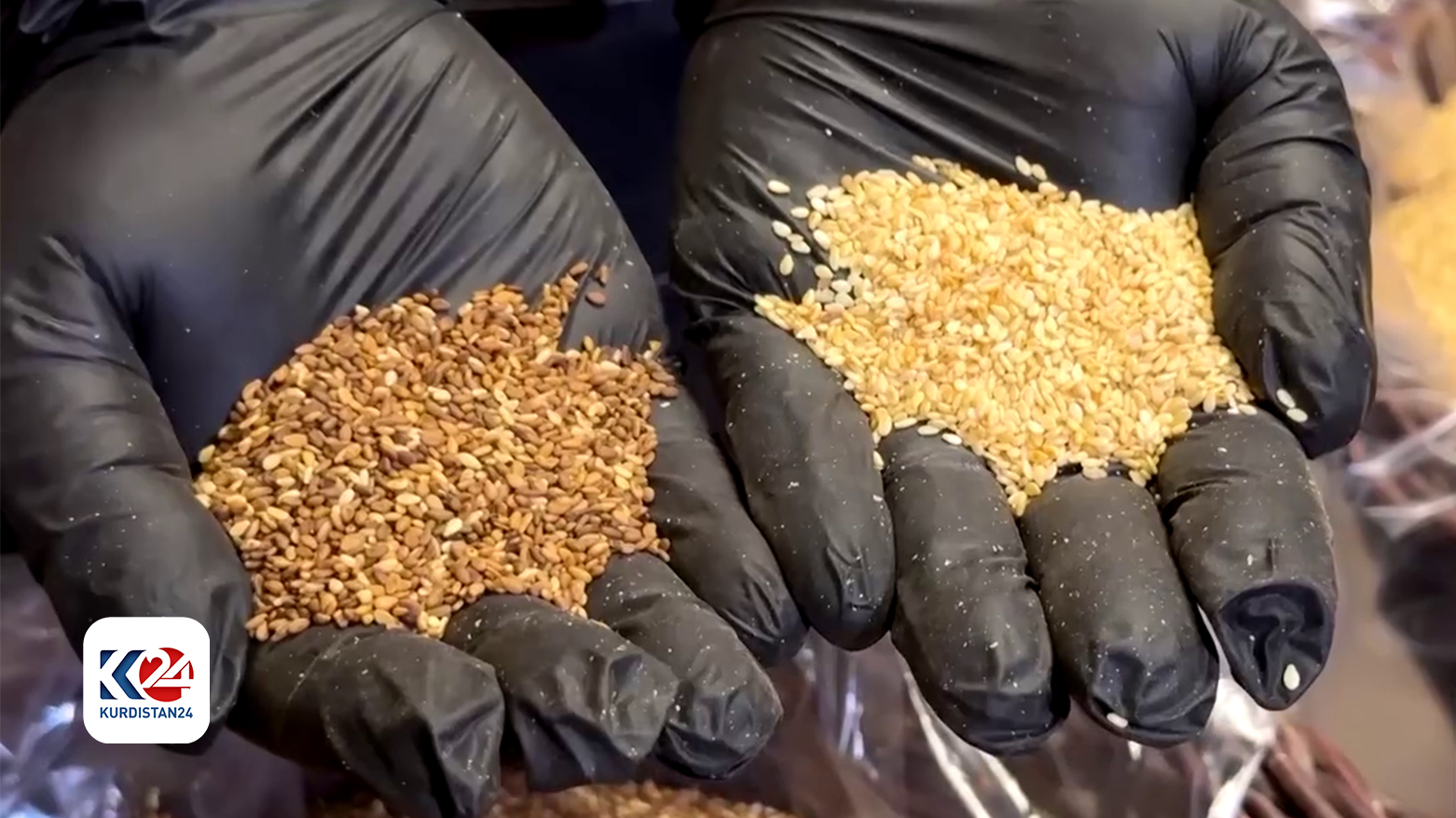Sesame harvest kicks off in Bitwen flatlands, boosting local tahini industry
Tahini production has become a crucial industry in Kurdistan Region, driving the need for a continuous supply of sesame seeds. The chain of production is well established, connecting local farmers directly with tahini producers.

ERBIL (Kurdistan24) – The fertile soil of Bitwen flatlands is once again bustling with activity as farmers begin the annual harvest of sesame seeds. Over the years, especially since the 1990s, the number of farmers in the region has grown significantly, and this year has seen an even larger area dedicated to sesame cultivation.
Sesame farming in Bitwen still largely relies on traditional methods. The process begins with cutting the plants at the base and stacking them upright in bundles to dry. This traditional drying method helps the seeds mature fully and reduces their moisture content.
Once dried, the plants are threshed to separate the seeds from the pods. While mechanized harvesting methods are increasingly used on larger farms to improve efficiency, the traditional approach remains common among many local farmers.
“After cutting the plants, we stack them and leave them to dry,” one farmer told Kurdistan24 reporter Aras Amin. “Then we thresh the crops. Nowadays, there are devices that can speed up the process.”
Despite the hard work involved, the farmers remain hopeful. “It is definitely labor-intensive, but thankfully, it can be rewarding,” said another farmer.
“If we manage to sell our produce, it provides a decent income. Last year, prices ranged between 4,400 and 4,600 dinars per kilo. This year, however, prices have dropped to between 2,800 and 3,000 dinars per kilo. Pricing is rarely stable, which makes planning difficult.”
In Kurdistan, sesame seeds are mainly divided into two categories: brown and white. Brown sesame seeds are the dominant variety grown in the region and are highly sought after for several uses, most notably in tahini production.
Kurdistan’s tahini, known for being fully organic and free from preservatives or chemicals, is increasingly in demand.
Tahini production has become a crucial industry in Kurdistan, driving the need for a continuous supply of sesame seeds. The chain of production is well established, connecting local farmers directly with tahini producers. In addition to a few larger tahini factories, many nut and seed stores have installed in-house grinders to produce tahini on a smaller scale. This homemade-style tahini remains popular among customers for its purity and organic nature.
A local shop owner who produces both tahini and sesame seed oil spoke to Kurdistan24 about the thriving industry. “We collect sesame seeds directly from the farmers,” he said. “The Bitwen and Pishdar plains are known for their fertile lands that yield an abundance of rich sesame seeds. Here, we turn them into tahini and also produce sesame seed oil.”
Currently, nearly 4,000 dunums of land in the Bitwen and Pishdar flatlands are devoted to sesame cultivation. Every year, hundreds of tons of sesame seeds are produced in Kurdistan, supplying both local and regional markets. The continued growth of the sesame seed industry remains vital for sustaining traditional agriculture and supporting the flourishing tahini sector in the region.
Further reporting was done by Kurdistan24's correspondent Aras Amin.